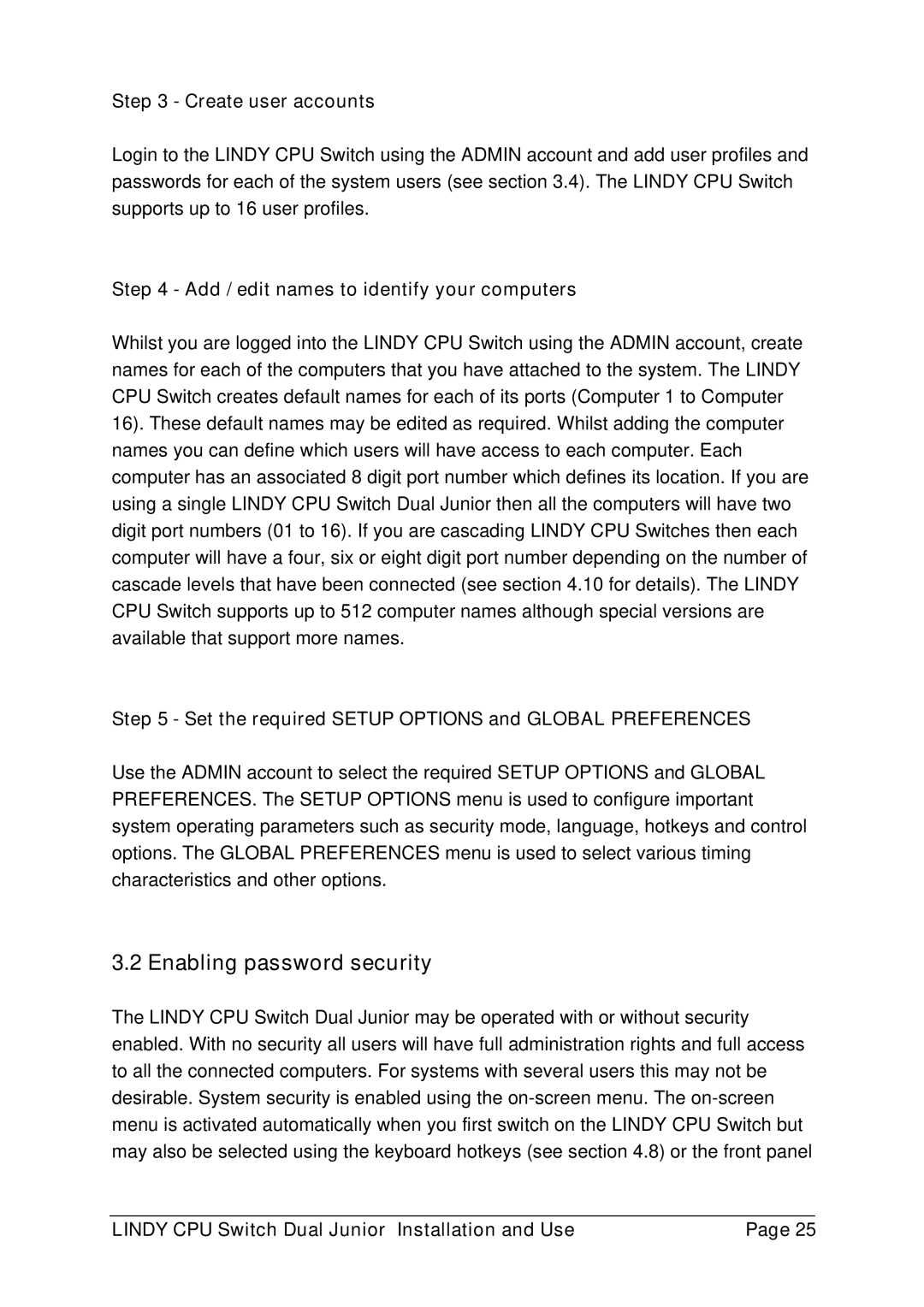Step 3 - Create user accounts
Login to the LINDY CPU Switch using the ADMIN account and add user profiles and passwords for each of the system users (see section 3.4). The LINDY CPU Switch supports up to 16 user profiles.
Step 4 - Add / edit names to identify your computers
Whilst you are logged into the LINDY CPU Switch using the ADMIN account, create names for each of the computers that you have attached to the system. The LINDY CPU Switch creates default names for each of its ports (Computer 1 to Computer 16). These default names may be edited as required. Whilst adding the computer names you can define which users will have access to each computer. Each computer has an associated 8 digit port number which defines its location. If you are using a single LINDY CPU Switch Dual Junior then all the computers will have two digit port numbers (01 to 16). If you are cascading LINDY CPU Switches then each computer will have a four, six or eight digit port number depending on the number of cascade levels that have been connected (see section 4.10 for details). The LINDY CPU Switch supports up to 512 computer names although special versions are available that support more names.
Step 5 - Set the required SETUP OPTIONS and GLOBAL PREFERENCES
Use the ADMIN account to select the required SETUP OPTIONS and GLOBAL PREFERENCES. The SETUP OPTIONS menu is used to configure important system operating parameters such as security mode, language, hotkeys and control options. The GLOBAL PREFERENCES menu is used to select various timing characteristics and other options.
3.2 Enabling password security
The LINDY CPU Switch Dual Junior may be operated with or without security enabled. With no security all users will have full administration rights and full access to all the connected computers. For systems with several users this may not be desirable. System security is enabled using the
LINDY CPU Switch Dual Junior Installation and Use | Page 25 |
